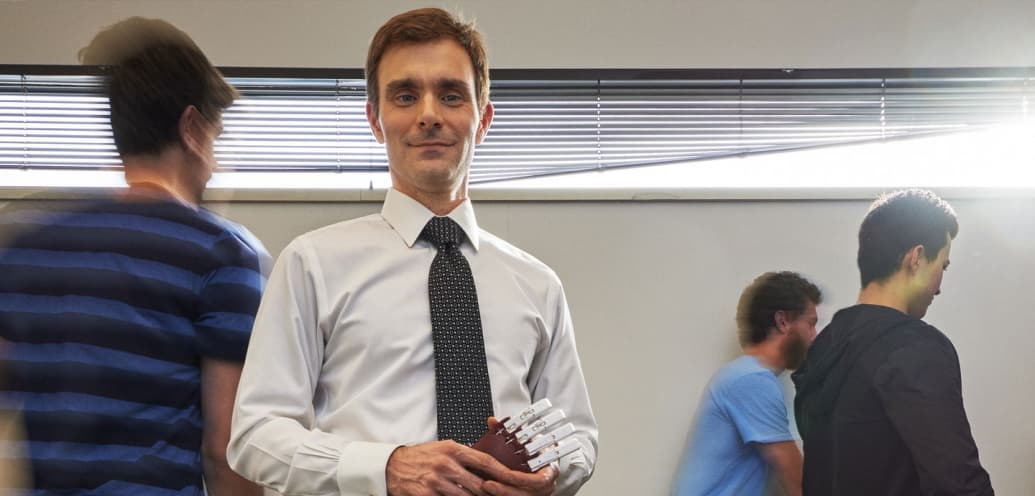For Seattle Pacific professor Adam Arabian, mechanical engineering is far more than a pursuit to invent and design the next greatest device. As an engineer and a Christian, Arabian sees his field as a tool to heal hurt and solve problems.
During a trip to Amman, Jordan, he met with a young boy named Zain. Wounded in an air strike in Syria, the amputee is being cared for by an Amman organization called Healing House.
Arabian and another international volunteer were able modify a design of a 3D printed hand created by other engineers to make a suitable hand for Zain. The prosthetic hand that Arabian assisted in modifying will be featured in an exhibit on design in prosthetics at the Victoria and Albert Museum in London.
After this experience, Arabian, an associate professor of mechanical engineering, immediately thought of his students back at Seattle Pacific.
“It really opened my eyes to the impacts our students can have in those environments, with the skills that we know we’re giving them,” Arabian said. He aims to help students understand the many ways engineering projects affect the work of mission organizations and non-governmental organizations (NGOs).
As Arabian returned to Seattle, he began looking for students to become involved with his global impact research. In his search, he reached out to senior mechanical engineering student Barrett Estep.

Estep’s interest in mechanical engineering began back in high school, where he worked on a FIRST Robotics team. However, he admitted that initially he was not immediately drawn to working on prosthetics as part of Arabian’s research.
As an avid road biker, Estep was more interested in designing new bike components or potentially an engine. Exploring his professor’s work, and seeing the impact, his mind changed.
“I did not pick prosthetics in engineering, but Dr. Arabian’s wisdom as my professor and thinking ahead really put me onto a track that has changed my life,” Estep said.

Estep also credits his connection to Arabian as a key component to his success at SPU and beyond.
“Dr. Arabian has been an incredible, unexpected mentor here at SPU,” Estep said. “Every step of the way, he just was seeking opportunities and ways he could plug me in because he learned how I thought as an engineer, as a student, [and] as an individual.”
Seattle Pacific is nationally ranked by U.S. News & World Report, and its engineering program specifically, is also nationally ranked. In addition, the mechanical engineering major can be completed in four years.
There’s something different about SPU and the way it guides it students, says Arabian.
“There are plenty of places that will teach engineering,” Arabian said. “… but what’s special about being at an institution like SPU is that we teach it in a way that is informed by our faith.”

“We don’t do engineering because we necessarily need to make the next great gizmo or gadget,” Arabian said. “We do engineering because God’s given us a really special gift to have a positive impact on the world.”




